Title: Lesser Known Monsters of the 21st Century
Author: Kim Fu
Genre: Short Stories/Magical Realism
Trigger Warnings: Vary by story; see end of review for list
Back Cover:
In the twelve unforgettable tales of Lesser Known Monsters of the 21st Century, the strange is made familiar and the familiar strange, such that a girl growing wings on her legs feels like an ordinary rite of passage, while a bug-infested house becomes an impossible, Kafkaesque nightmare. Each story builds a new world all its own: a group of children steal a haunted doll; a runaway bride encounters a sea monster; a vendor sells toy boxes that seemingly control the passage of time; an insomniac is seduced by the Sandman. These visions of modern life wrestle with themes of death and technological consequence, guilt and sexuality, and unmask the contradictions that exist within all of us.
Mesmerizing, electric, and wholly original, Kim Fu’s Lesser Known Monsters of the 21st Century blurs the boundaries of the real and fantastic, offering intricate and surprising insights into human nature.
Review:
Admittedly, I have not read a ton of short story collections. However, in my limited experience I’ve never encountered a short story collection where every single story is spectacular. But Lesser Known Monsters of the 21st Century contains twelve stories that are weird, vivid, occasionally disturbing, brilliant, and unforgettable.
Some of them were disturbing or just plain weird (“Sandman,” “Scissors,” “Bridezilla”). Some inspired a lot of emotions, sometimes very intense ones (“Pre-Simulation Consultation XF007867,” “Time Cubes,” “June Bugs”). Some of them left me feeling like there was some meaning just beyond the written words that I wasn’t quite getting (“Liddy, First to Fly,” “Twenty Hours,” “In This Fantasy”). And some were just perfectly good short stories (“#ClimbingNation,” “The Doll,” “Do You Remember Candy”). But all of them were great in their own way.
Personally, I love the off-kilter feeling of the normalized weirdness in magical realism. And even though many of these stories don’t fit into strict magical realism territory (there are several that could be better categorized as science fiction, horror, or even contemporary), they all have that same vibe. They are infused with a feeling that everything is a little strange, a little off, a little not quite what you expected and that you’re the weird one for thinking it’s strange. If anything connects these stories, it’s that feeling, and I loved it.
If I had to pick a few favorites, I would go with “Sandman” (surprisingly emotionally compelling despite being very weird in concept), “Do You Remember Candy” (is there a word for the grief of losing something you haven’t actually lost yet? Because that’s what this story inspires), and “Time Cubes” (vividly sad with a dark but bittersweet ending). (June Bugs” does get an honorable mention for its heart-poundingly realistic depiction of the more subtle kind of abusive relationship.) But like I keep saying, there are no bad stories here. All of them are great in their own way. This short story collection is definitely worth reading.
Trigger Warnings:
- Pre-Simulation Consultation XF007867: Parent death, unreality (minor)
- Liddy, First to Fly: Body horror
- Time Cubes: Mental illness, suicidal ideation, suicide
- #ClimbingNation: Death, sibling death, grief
- Sandman: Unreality, body horror (kinda)
- Twenty Hours: Death, romantic partner death, murder, gun violence, infidelity (mentioned as hypothetical), blood (mentions), body horror (mild)
- The Doll: Child death, death, suicide
- In This Fantasy: Domestic abuse, death, blood, murder, infidelity, unreality
- Scissors: Sexual content
- June Bugs: Domestic abuse, emotional abuse, toxic relationship, guns, insects
- Bridezilla: Animal death, ecological disaster (mentions)
- Do You Remember Candy: Loss of senses, strained parent-child relationship

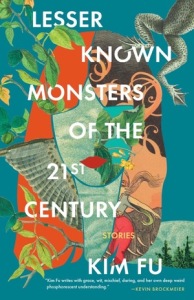
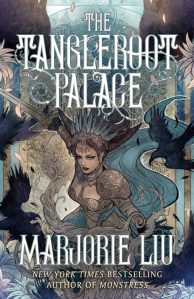
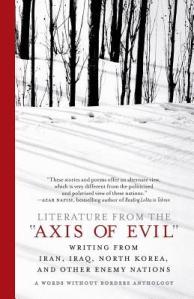
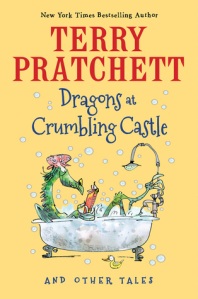
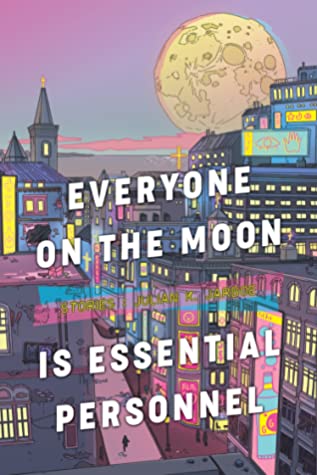
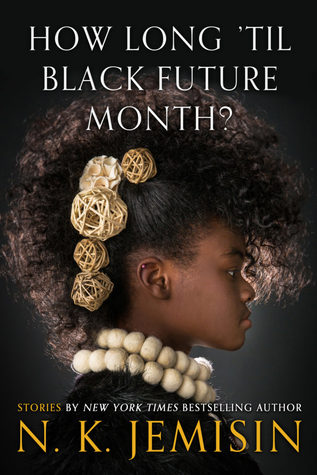
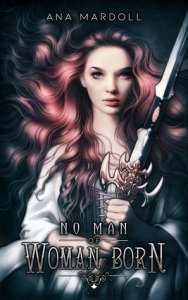
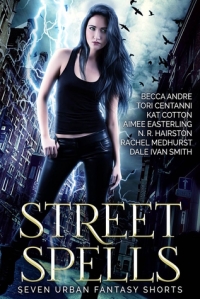 Title: Street Spells: Seven Urban Fantasy Shorts
Title: Street Spells: Seven Urban Fantasy Shorts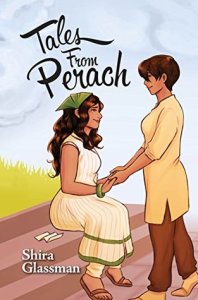 Title: Tales from Perach
Title: Tales from Perach